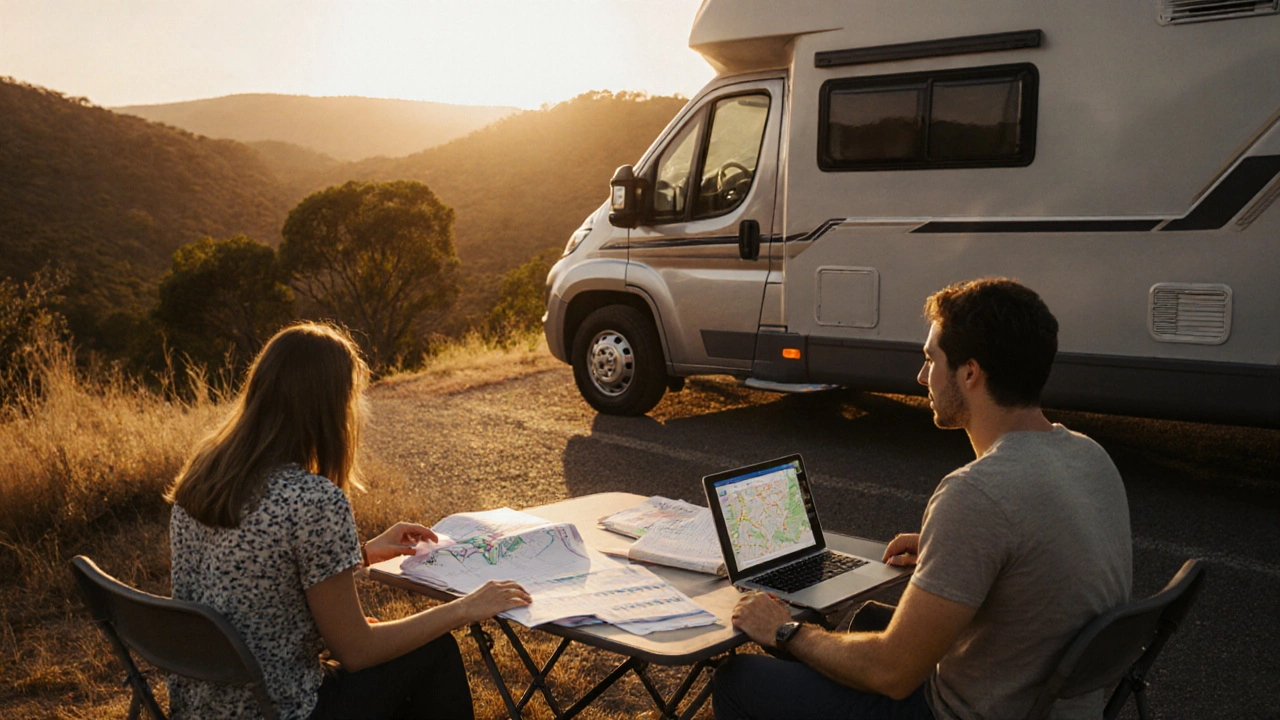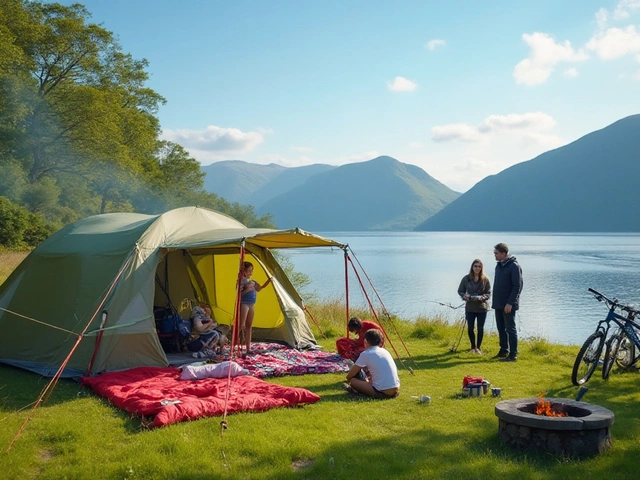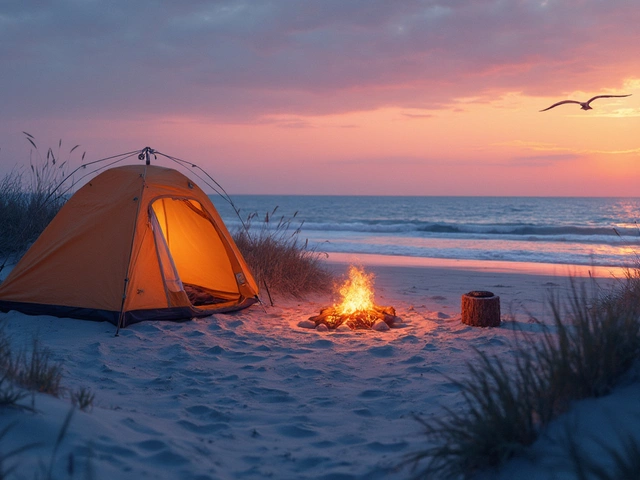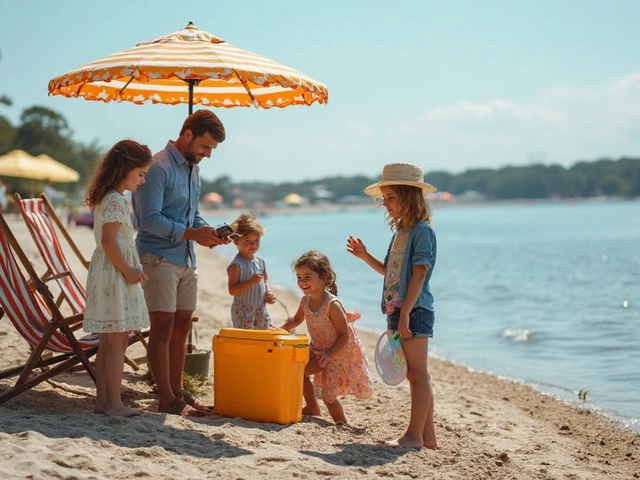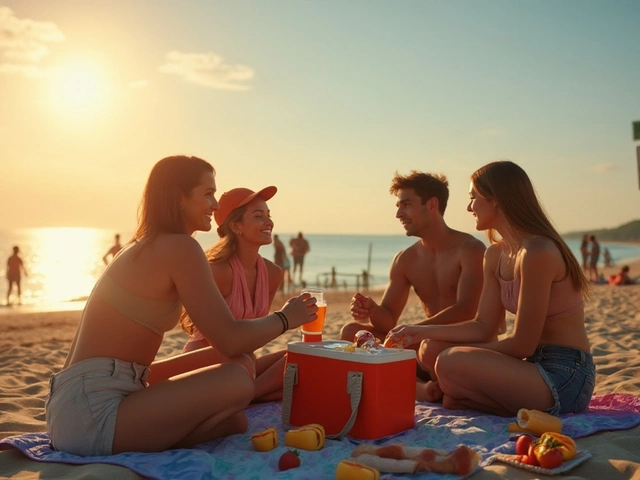Motorhome Fuel Cost Calculator
Calculate Your Fuel Costs
Estimate your fuel expenses for the trip based on your motorhome's efficiency and current fuel prices.
Planning a motorhome holiday is a mix of adventure and logistics, and getting the balance right can turn a stressful trip into a smooth, unforgettable ride.
Why a solid plan matters
A clear plan saves you from missed reservations, unexpected fuel costs, and last‑minute scrambles for a place to park overnight. It also lets you focus on the scenery instead of wondering where the next water point is.
Step 1: Set dates and budget
Start by penciling in the timeframe you want to be on the road. Summer months are popular, so early booking often means lower rates. Next, draft a simple budget sheet covering fuel, campsite fees, food, attractions, and a buffer for emergencies.
- Fuel: Estimate mileage (kilometres per litre) from your motorhome’s manual and multiply by current fuel prices.
- Campsite fees: Average $30‑$60 per night for powered sites in Australia.
- Food: Plan a mix of self‑cooked meals and occasional dining out.
- Extras: Park fees, wildlife tours, and souvenir budgets.
Step 2: Choose your route and map key stops
Route planning is the backbone of any motorhome holiday. Use a dedicated route planner like Google Maps or specialized RV apps that factor in vehicle size, low bridges, and fuel stations.
Mark three types of stops:
- Main attractions: National parks, coastal lookouts, or historic towns you don’t want to miss.
- Rest points: Service stations with clean restrooms and dump points - essential for long stretches.
- Overnight sites: Campsites that suit your motorhome’s length and power needs.
When you spot a stretch longer than 300 km without a suitable stop, consider an alternative path or a day‑break break.
Step 3: Book campsites and understand site types
Australia offers a range of sites, each with its own perks. Booking ahead guarantees a powered slot, which many motorhome owners prefer for running appliances.
| Type | Cost (per night) | Facilities | Reservation | Pet‑friendly |
|---|---|---|---|---|
| Free Wild Camping | $0 | Basic water, no power | No | Usually yes |
| Paid Caravan Park | $30‑$60 | Power, water, dump, Wi‑Fi | Yes | Often yes |
| Luxury Motorhome Site | $80‑$150 | Full hookups, spa, lounge, BBQ | Yes | Usually yes |
For families, a paid caravan park often provides playgrounds and clean restroom blocks, while solo travelers may enjoy the freedom of wild camping where allowed.
Step 4: Prepare your motorhome - maintenance and safety
A pre‑trip check can prevent breakdowns miles from the nearest service centre. Use a motorhome maintenance checklist that covers these essentials:
- Power system: Test batteries, inverter, and solar panels.
- Plumbing: Verify no leaks, test the water pump, and ensure the black water tank empties correctly.
- Tires: Check tread depth, pressure, and carry a spare.
- Brakes & suspension: Look for unusual wear.
- Lights & signals: Replace any dim bulbs.
Don’t forget to pack a basic tool kit, spare fuses, and a fire extinguisher.
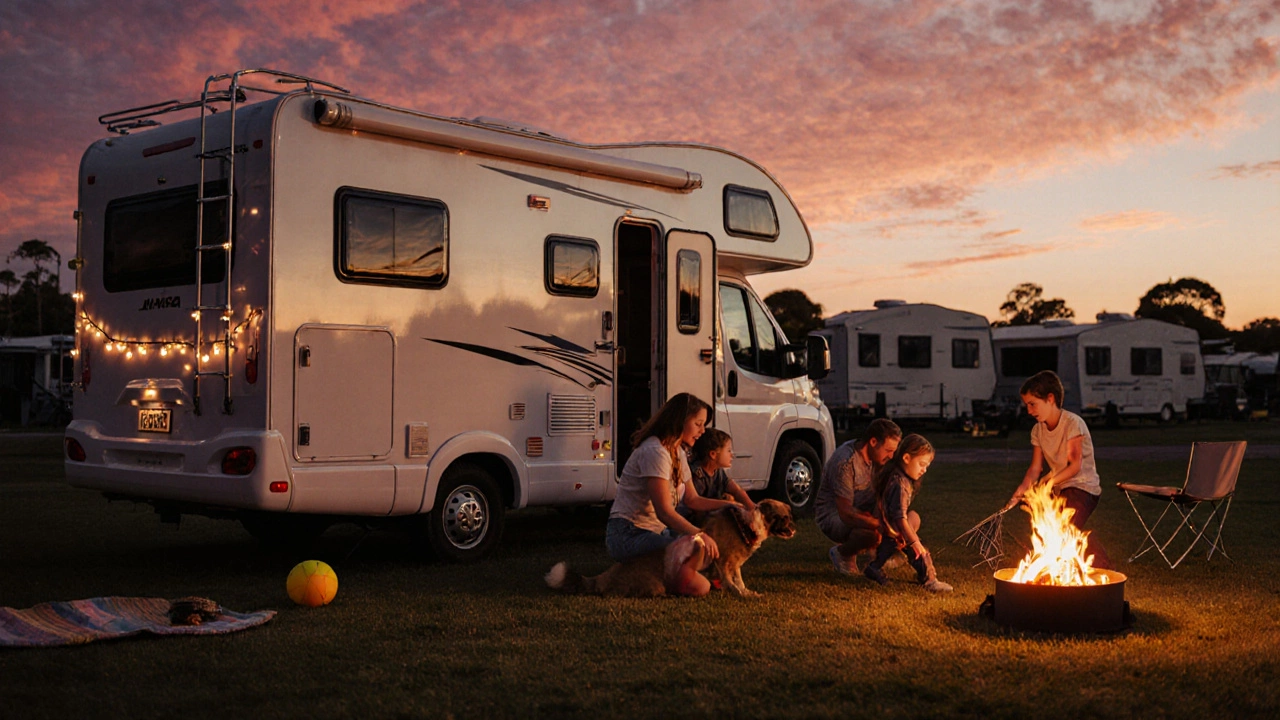
Step 5: Pack smart - kitchen, bathroom, and leisure gear
Space inside a motorhome is limited, so prioritize multi‑use items. A collapsible kitchen set (pot, pan, cutting board) and a compact camping stove keep meals simple and mess‑free. For bathroom comfort, a quick‑dry towel and biodegradable soap are a must.
Leisure gear varies by travel style:
- Hiking: Pack lightweight boots, a daypack, and a reusable water bottle.
- Beach days: Bring a fold‑out beach mat and sand‑proof storage bags.
- Family fun: Include board games, a portable DVD player, and a bunch of snacks.
Label boxes with their contents to avoid rummaging through the entire cabin each night.
Step 6: Stay connected - apps, insurance, and roadside assistance
Modern apps make life on the road easier. A camping app like WikiCamps Australia shows site reviews, flare‑light maps, and dump‑point locations. Pair it with a travel insurance policy that covers vehicle damage, personal belongings, and medical emergencies.
Invest in a reputable roadside assistance service. Many providers offer 24‑hour towing, on‑site repairs, and battery jump‑starts - invaluable when you’re stuck in a remote area.
Finally, keep a portable Wi‑Fi hotspot and a power bank handy for navigation and emergency calls.
Bonus: Tips for families and pets on a motorhome holiday
Traveling with kids? Schedule regular breaks every 2‑3 hours to stretch legs and avoid crankiness. Pack a travel‑size first‑aid kit, favorite toys, and a portable highchair if needed.
Pets love the open road too. Bring a sturdy crate, enough pet food, and a portable water bowl. Verify pet policies at each campsite - most caravan parks are dog‑friendly, but some luxury sites charge extra.
Remember, a well‑planned motorhome holiday lets you focus on the journey, not the logistics. So map your route, book wisely, check your rig, and hit the road with confidence.
motorhome holidayHow far in advance should I book campsites?
During peak summer months, book at least 4‑6 weeks ahead. For off‑season trips, 2‑3 weeks is usually enough, but popular national parks may still fill up quickly.
What is the best way to estimate fuel costs?
Check your motorhome’s claimed fuel consumption (litres per 100 km) in the manual, multiply by the total kilometres you plan to travel, and then apply the current fuel price per litre.
Can I camp for free on public lands?
In many Australian states, free wild camping is allowed in designated areas such as state forests and national park margins, provided you follow local regulations and stay for no more than 24‑48 hours.
What essential tools should I keep in my motorhome?
A basic toolkit (screwdrivers, pliers, adjustable wrench), spare fuses, a tire pressure gauge, D‑shaped spare tyre, and a fire extinguisher are must‑haves.
Is travel insurance necessary for a motorhome trip?
Yes. Look for policies that cover vehicle damage, personal belongings, medical emergencies, and trip cancellation. Some insurers also include roadside assistance.
